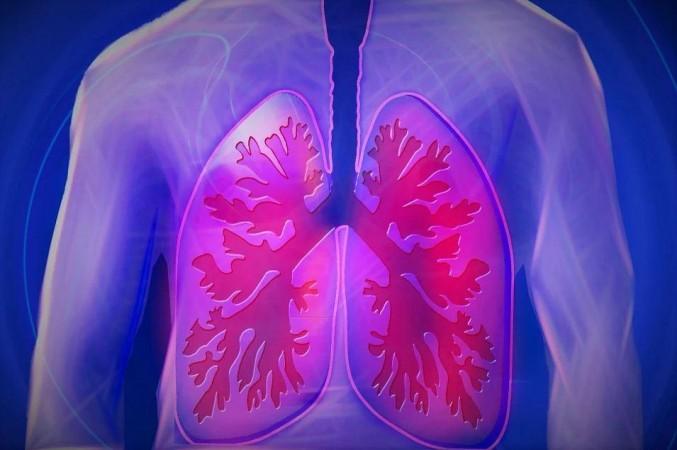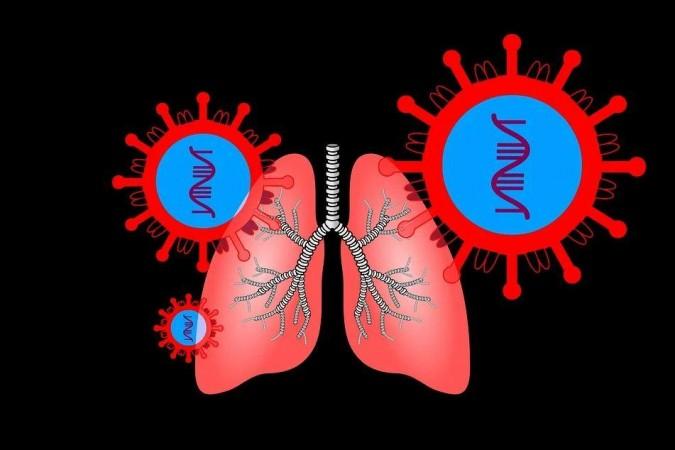The biggest mystery surrounding COVID-19 is the varied and unpredictable outcomes among the infected. Therefore, why the SARS-CoV-2 coronavirus infects in varying degrees continues to remain an important question. Now, a study by scientists from Hokkaido University reports the discovery of a novel immune defense response against the virus that could be the answer.
According to the study, the expression of RIG-I, a biological molecule that can detect RNA viruses, suppresses the replication of the novel coronavirus in the lung cells. These findings may help not only in the prediction of outcomes in COVID-19 patients but also help bolster immune response in individuals with chronic obstructive pulmonary disease (COPD).
"Our findings demonstrate the distinctive role of RIG-I as a restraining factor in the early phase of SARS-CoV-2 infection in human lung cells," wrote the authors. The study was published in the journal Nature Immunology.
Pathogen Detectors In Action

Pathogens that enter the human body are identified by proteins called pattern recognition receptors (PRRs). PRRs also initiate immune responses against these microbial invaders. Different sets of PRRs are involved in the detection of different pathogens. Viruses are detected by a subset of PRR's called RIG-I (retinoic acid-inducible gene-I). RIG-I is known for the crucial role it plays in the identification and response to RNA viruses. As SARS-CoV-2 is an RNA virus, the authors focused on RIG-I.
For the study, the authors investigated the innate cytokine responses in different lines of cells against the SARS-CoV-2 virus. During these experiments, they learned that pulmonary or lung cells displayed very little innate immune response to the coronavirus. This suggested that the signaling pathway that results in immune response had been disrupted. However, the replication of the pathogen after gaining entry into the cell was also suppressed.
Next, the authors examined the role that RIG-I played in the process. They discovered that the lack of it led to increased replication of the virus. As the team experimented further with RIG-I, they were able to confirm that suppression of SARS-CoV-2's replication was indeed influenced by RIG-I.
Impeding Viral Replication Process

Patients with co-morbidities and pre-existing conditions such as COPD are known to have fatal outcomes. Armed with the new information about RIG-I, the researchers tested the effect of RIG-I expression in lung cells acquired from patients with COPD. They demonstrated that downregulation of RIG-I expression led to the detection of viral replication in these cells after five days.
Following this, the team also showed that the upregulation of RIG-I expression is beneficial against viral replication. They treated the COPD cells with a drug called all-trans retinoic acid (ATRA), which is known for its ability to upregulate the expression of RIG-I. This treatment was found to considerably reduce the viral concentration in the infected COPD cells.
Predicting Outcomes In COVID-19 Patients

Most importantly, the scientists explained the mechanism through which RIG-I suppressed viral replication of the novel coronavirus utilizing RIG-I mutants: The helicase domain, a structural component within RIG-I, interacts with the viral DNA of the SARS-CoV-2. After the interaction, it blocks a virus-derived protein that is essential for the coronavirus' replication.
The authors termed this unique mechanism as 'RIG-I-mediated signaling-abortive anti-SARS-CoV-2 defense mechanism'. According to the study, expression levels of RIG-I can serve as one of the potential parameters to predict the outcome in COVID-19 patients.
"Uncovering factors or conditions that modulate RIG-I expression levels are key for better understanding of SARS-CoV-2 pathogenicity and for the development of a new strategy to control SARS-CoV-2 infection," concluded the study.

















